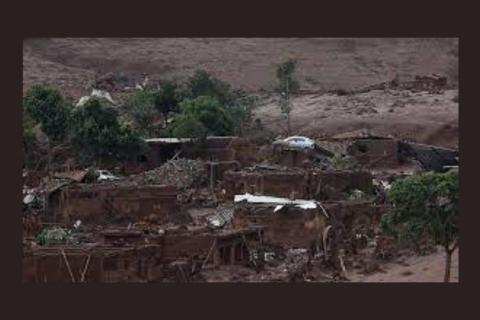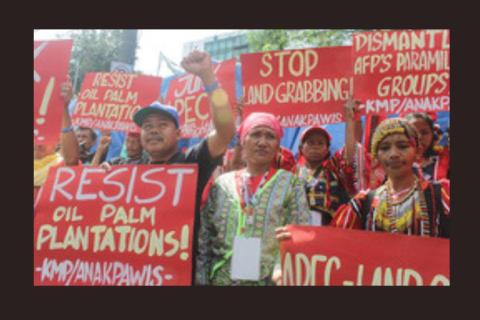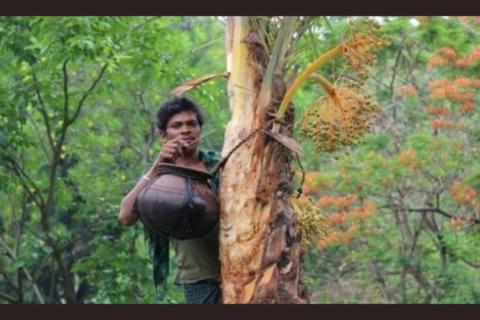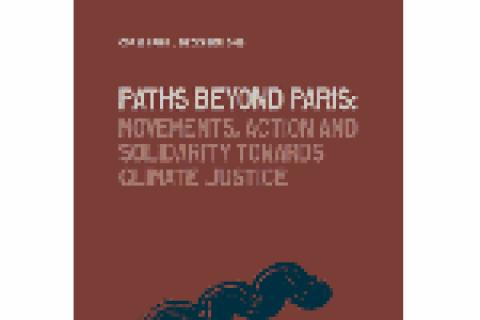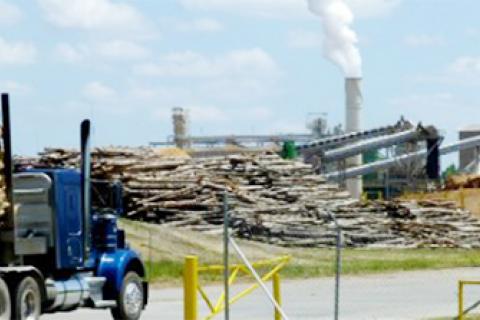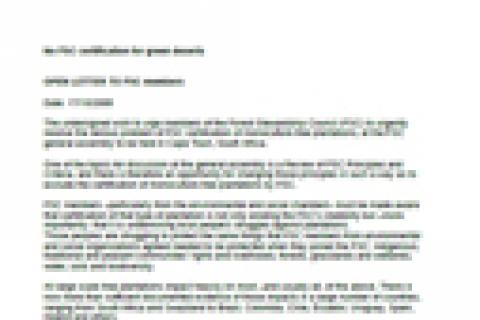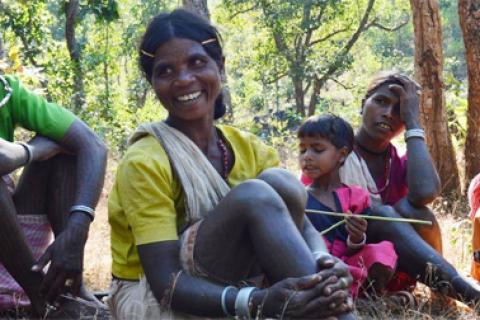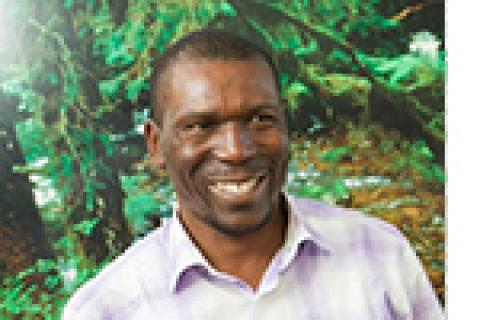On November 5th, one of the largest environmental disasters in the history of Brazil occurred. Two dams operated by mining company Samarco burst in the state of Minas Gerais, dumping sludge with the company's toxic waste in an area where hundreds of families lived. The disaster killed dozens of people, destroyed hundreds of homes, and destroyed the life of one of Brazil's major rivers, the “Río Doce.” This in turn has affected the water supply of hundreds of thousands
Other information
In early November, a gathering of peasants and indigenous peoples from Mindanao, Bohol and Palawan, denounced the government’s plan to devote eight million hectares of land to oil palm by 2023. Oil palm plantations in the Philippines cover almost 55,000 hectares. The Philippine Coconut Authority’s (PCA) 2014 to 2023 road map has identified about a million hectares for potential oil palm farms.
The Unist’ot’en camp in North-Western British Colombia, Canada, has since 2011 been maintaining a check-point to control access through their territory to stop government and industry plans to build several gas and oil pipelines.
The Indian government is producing many proposals to make more profit from the country’s forests. These include wider application of their huge Compensatory Afforestation Fund and private leasing plans.
For decades, governments and intergovernmental agencies like the UN or the World Bank have been busy finding ways to allow the flow of large investments and projects to go on – no matter the consequences. Despite fossil fuels being the main cause of climate change, we see oil, coal and gas companies expanding extraction activities. Despite land clearance for industrial agriculture being one of the main causes of deforestation, we see agribusinesses increasing tree and crop monocultures.
By Oilwatch.
The purpose of this document is to present the commitments and efforts that peoples, nationalities, and communities have undertaken against the extraction of oil, gas, or coal as a contribution toward avoiding climate disaster.
We, the signatories of this declaration, are calling on the European Union (EU) to exclude bioenergy from its next Renewable Energy Directive (RED), and thereby stop direct and indirect subsidies for renewable energy from biofuels and wood-burning.
Subject: The proposal of the California government to include REDD+ offset credits from the state of Acre, Brazil, and from other states and countries with tropical forests.
Montevideo, November 16, 2015
International Civil Society Alarmed by Conviction of Cameroonian Environmental Human Rights Defender
November 9, 2015
Oakland, CA—Cameroonian authorities must stop the harassment of Nasako Besingi, environmental human rights defender, according to an international coalition of civil society organizations including the Oakland Institute, Forest Peoples Programme, Grain, Save Wildlife Foundation, Cultural Survival, Greenpeace Africa, WRM, and the Environmental Investigation Agency.
The Oilwatch network has issued an international call for creating an “Annex 0” group at the UN climate negotiations. This would mean a group of peoples or nations acknowledged for their contributions to prevent further climatic changes, for example, with the commitment of leaving fossil fuels in the ground. Initiatives under “Annex 0” include, among others, the rejection of mechanisms such as carbon markets, REDD+, and other false solutions against climate change.
